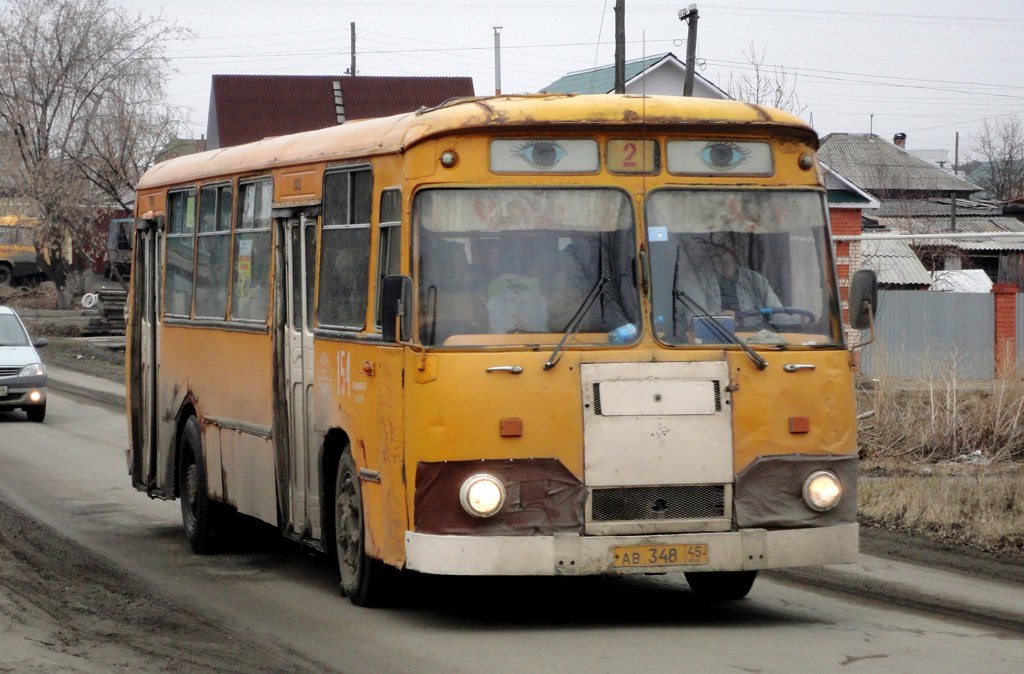Bus filter from Southampton - the first step to cleaner cities
- Transfer
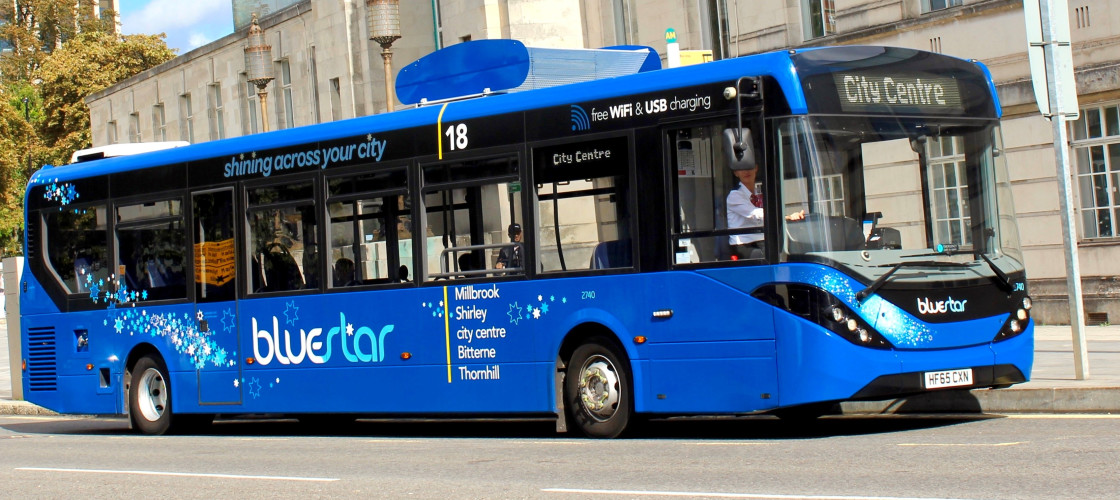
At the end of September 2018, one of the passenger routes of the city of Southampton (which is located on the southern coast of the UK) was the prototype of a modernized bus (from a series of vehicles called Bluestar) that will change the world for the better, and also free WiFi and USB on board. charging.
The first UK filter bus was released by Go-Ahead transport company on a route in the city of Southampton to try to reduce the dangerous level of air pollution in the city.
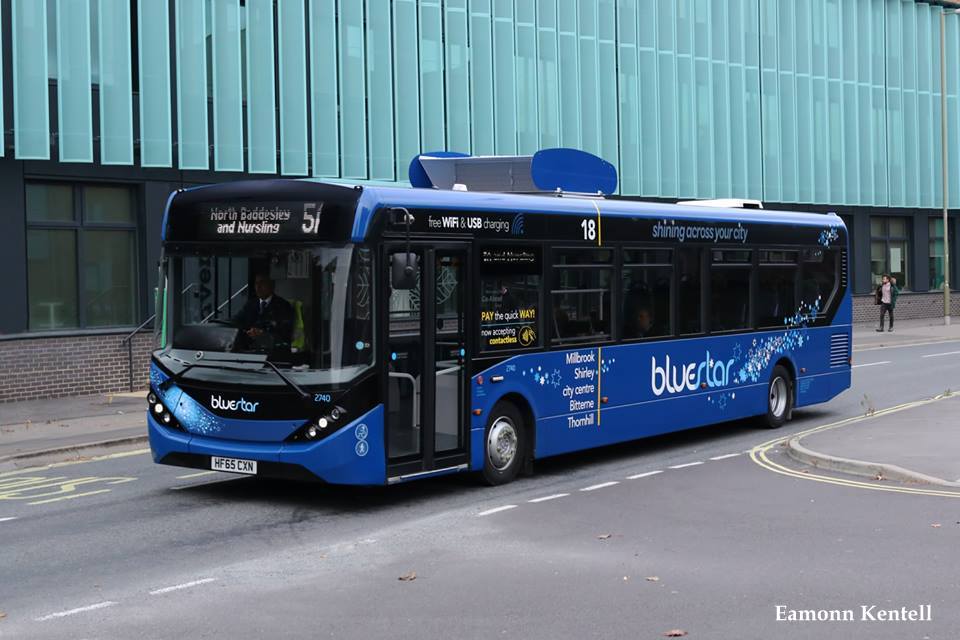
This bus is equipped with a filtration system designed to block up to 99.5% of contaminated particles in the passing air stream. The developers of the solution claim that such a filter on the roof of the Bluestar bus detains even ultrafine soot particles as the bus moves, and an almost clean air zone is formed at the filter exit.
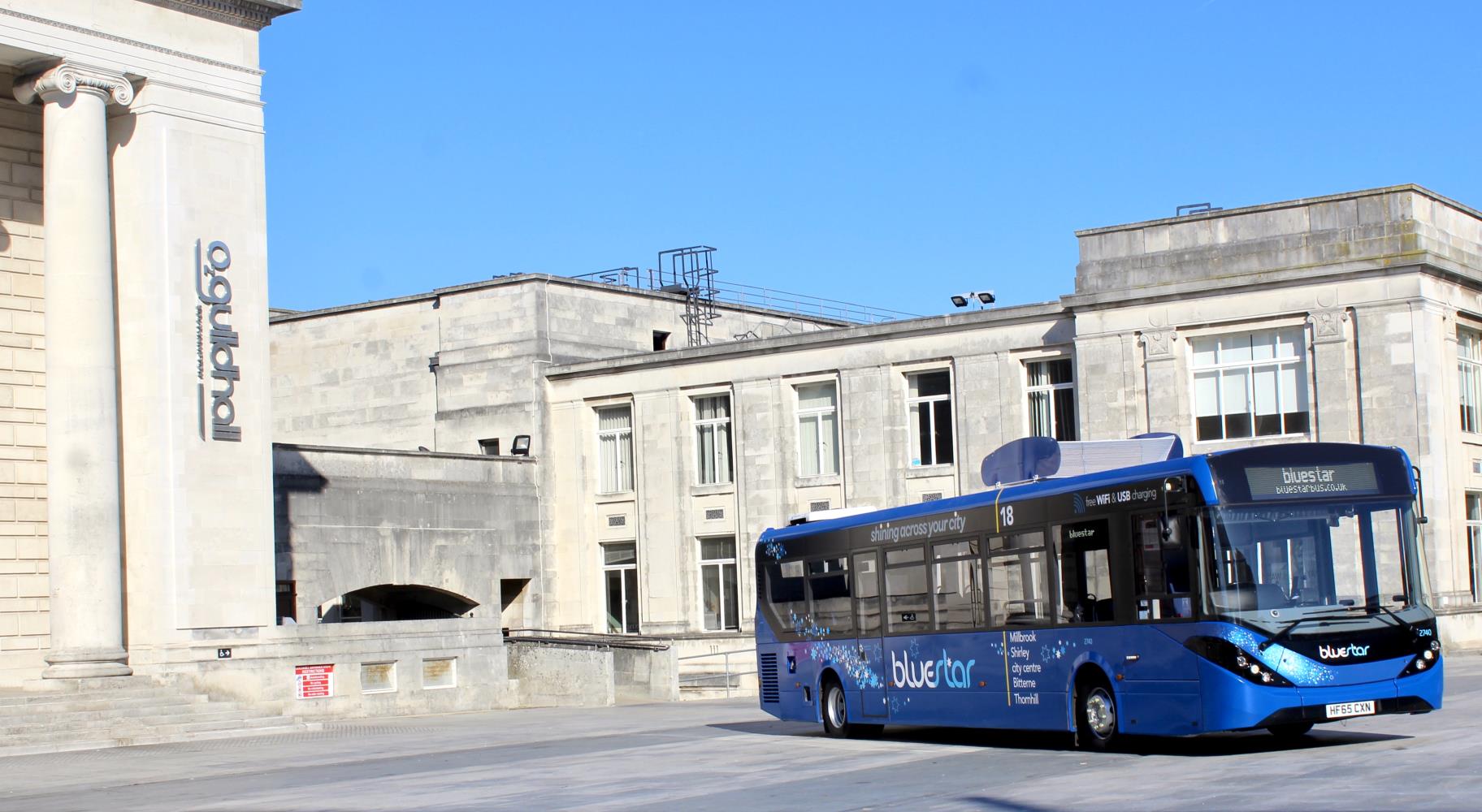
David Brown, Chief Executive Officer of Go-Ahead Transportation Company, expressed his opinion: “We want this pilot project to show in practice that buses and passenger transport in general should be viewed not only as a solution to the problem of traffic and passenger traffic in congested cities, but also how opportunity to solve the problem of improving air quality. Since the bus removes even ultrathin dirt particles from the air using such a filter, when it moves along its route, it helps to solve the problem of air purification in the city. Imagine what an opportunity for improving the quality of air we will have if all buses had this technology. ”
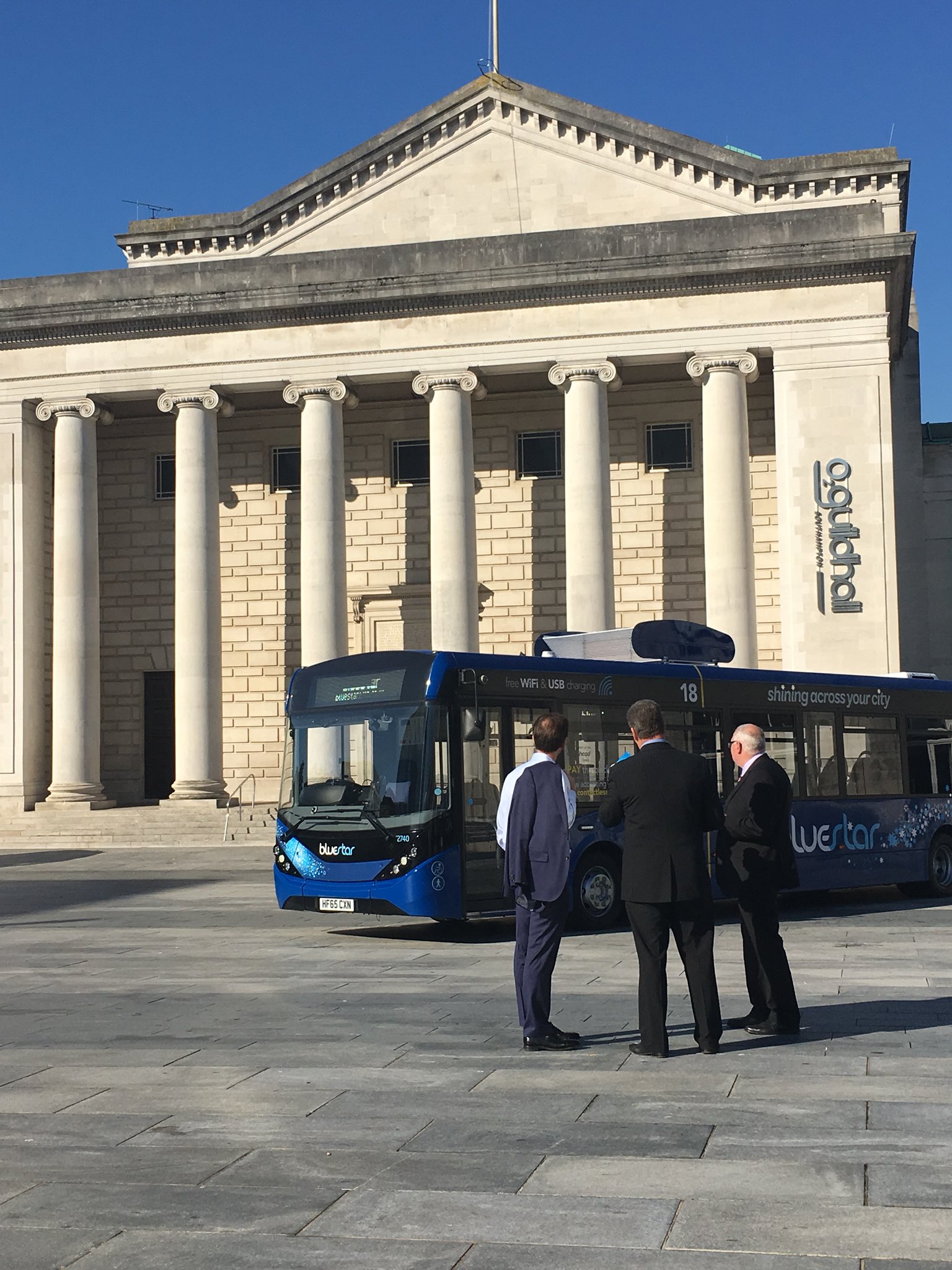
The Bluestar bus has a barrier filter built by Pall Aerospace, which is a manufacturer of special filtration systems for aircraft and ships.
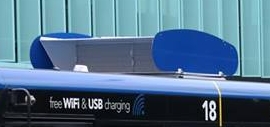
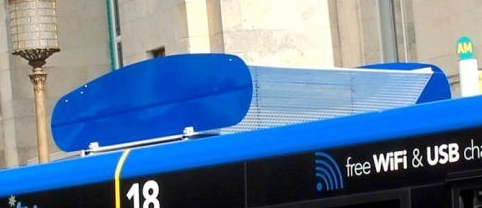
The filter will pick up particles of dust and soot while the bus is moving, cleaning the air behind and above it. The developers note that the presence of the filter does not affect the comfort of transport or the health of passengers.
Outwardly, this filter resembles a car spoiler into which air flow enters while the bus is moving. Inside the filter, air masses are cleaned, and naturally the air comes out already clean.
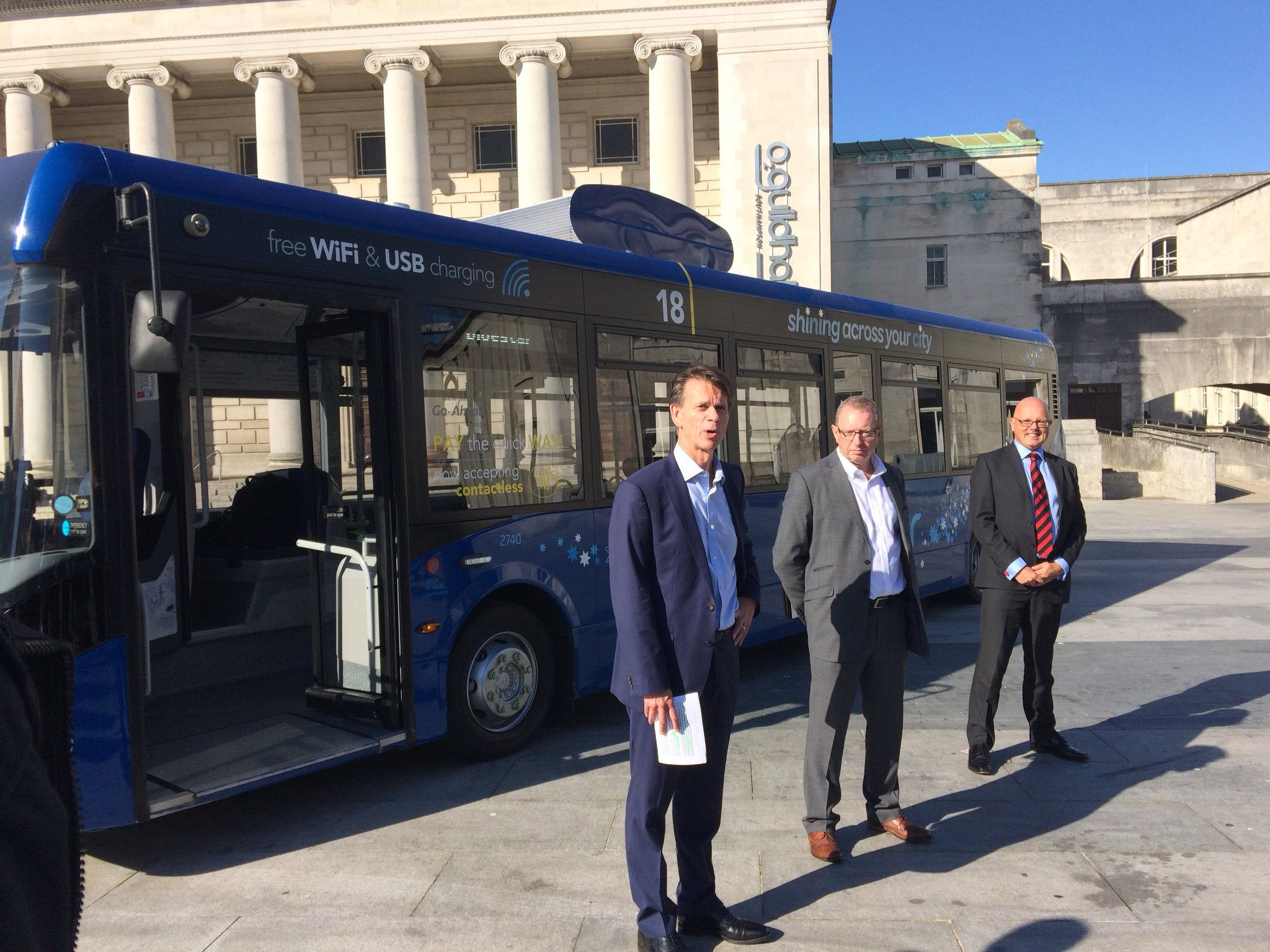
It may seem that in this way only a small amount of air can be cleaned. In fact, filtering volumes can be substantial if the bus operates continuously. In fact, cleaning by capturing the air flow is carried out at a height of up to 10 meters from the road surface due to turbulence, the aerodynamic properties of the bus and its constant, though not high speed.
According to the feasibility studies and calculations carried out by Pall Aerospace (filter manufacturer), this pilot bus on its route for the year will be able to clean the air volume comparable to sixteen volumes of all air along the route up to ten meters.
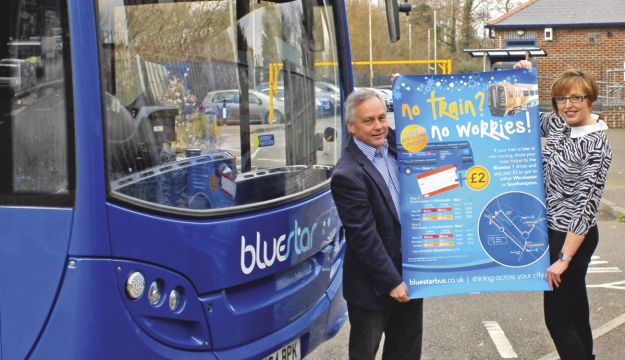
David Brown also noted that when installing such filters on all buses in the city of Southampton, it is possible several times a year (1.7 times, to be exact) to completely purify the local urban air.
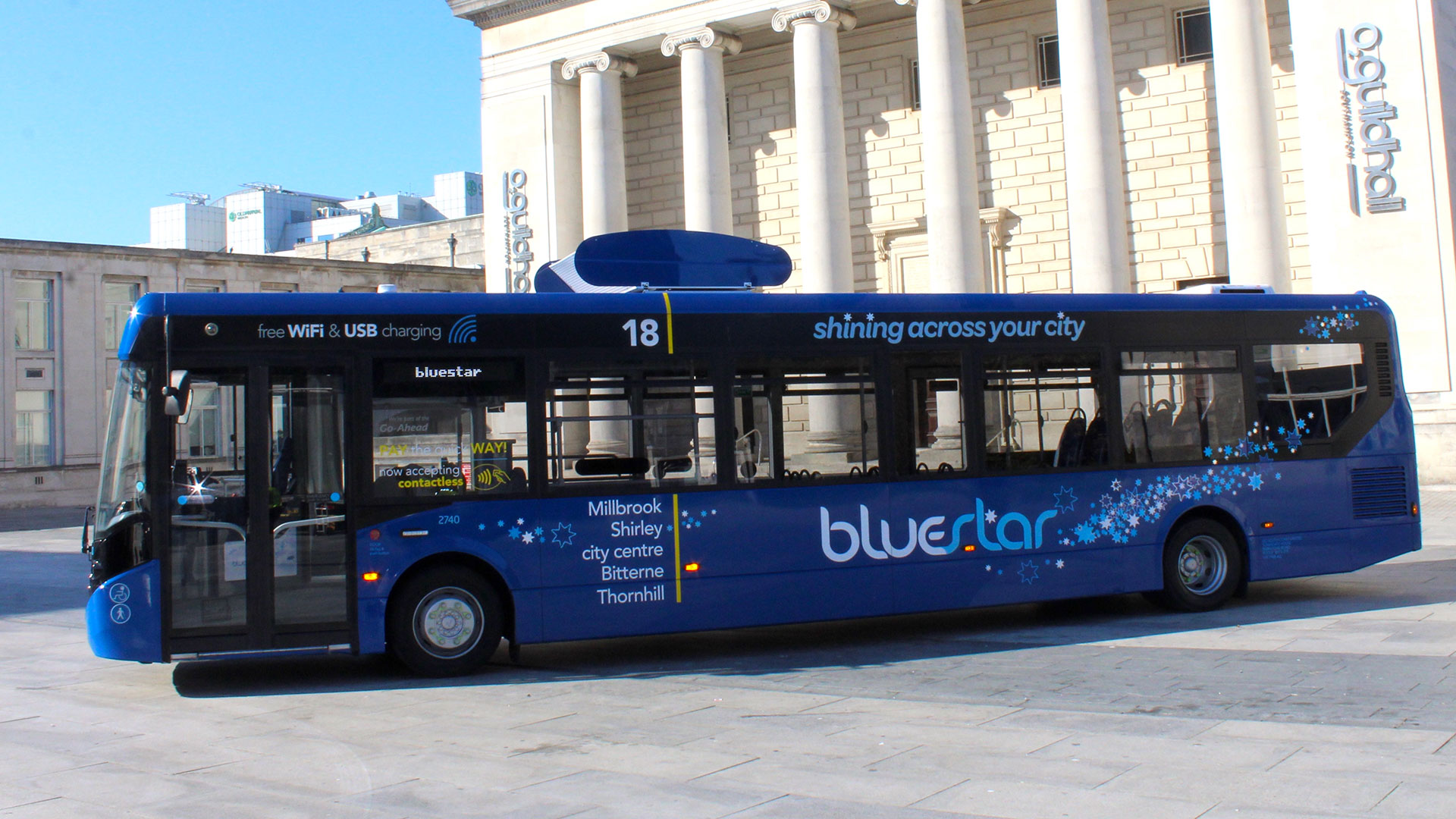
The city of Southampton was selected for this pilot project after the World Health Organization, in its reports in early 2018, warned that the city had reached the absolute limit of air pollution. In 2015, the city was already warned, along with Derby, Birmingham, Nottingham and Leeds, that the city authorities should provide a plan to combat extremely high air pollution. According to experts, air pollution in the UK causes up to 40,000 premature deaths per year. Last month, a group of 17 city heads called on the government to take action on a "public health crisis in the country."

Andrea Lee, an environmental advocate for ClientEarth , said:
“Nice to see innovative attempts to clean our dirty air. However, this should not detract from the real priority - to minimize the pollution itself in the first place. We need less transport on the road, and more environmentally friendly cars. Ultimately, we would like to see buses in which the use of zero-emission technology from the exhaust pipe will be approved as a standard . But this will not happen without concerted action by the UK government, which should introduce a national network of clean zones to protect people from the most dangerous pollutants in the most polluted areas of our cities and towns ”.
You can buy tickets here , see the schedule and other information.
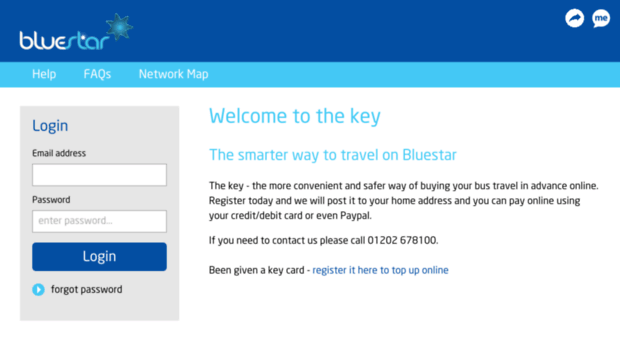
What is the result?
So far, the modified bus Bluestar runs only through the streets of Southampton.
After three months of testing, the Bluestar bus filter will be dismantled, its weight will be measured to understand how different it will be from the initial one, and samples of filter elements will be examined and examined.
If it is recognized as successful by this method of filtering air masses (if filtering turns out to be effective), this technology will be implemented on all 4,600 Go-Ahead buses.
Given that the company also provides bus transportation in Singapore and Dublin, the Bluestar project will make an enormous contribution to the cause of air purification on the planet.
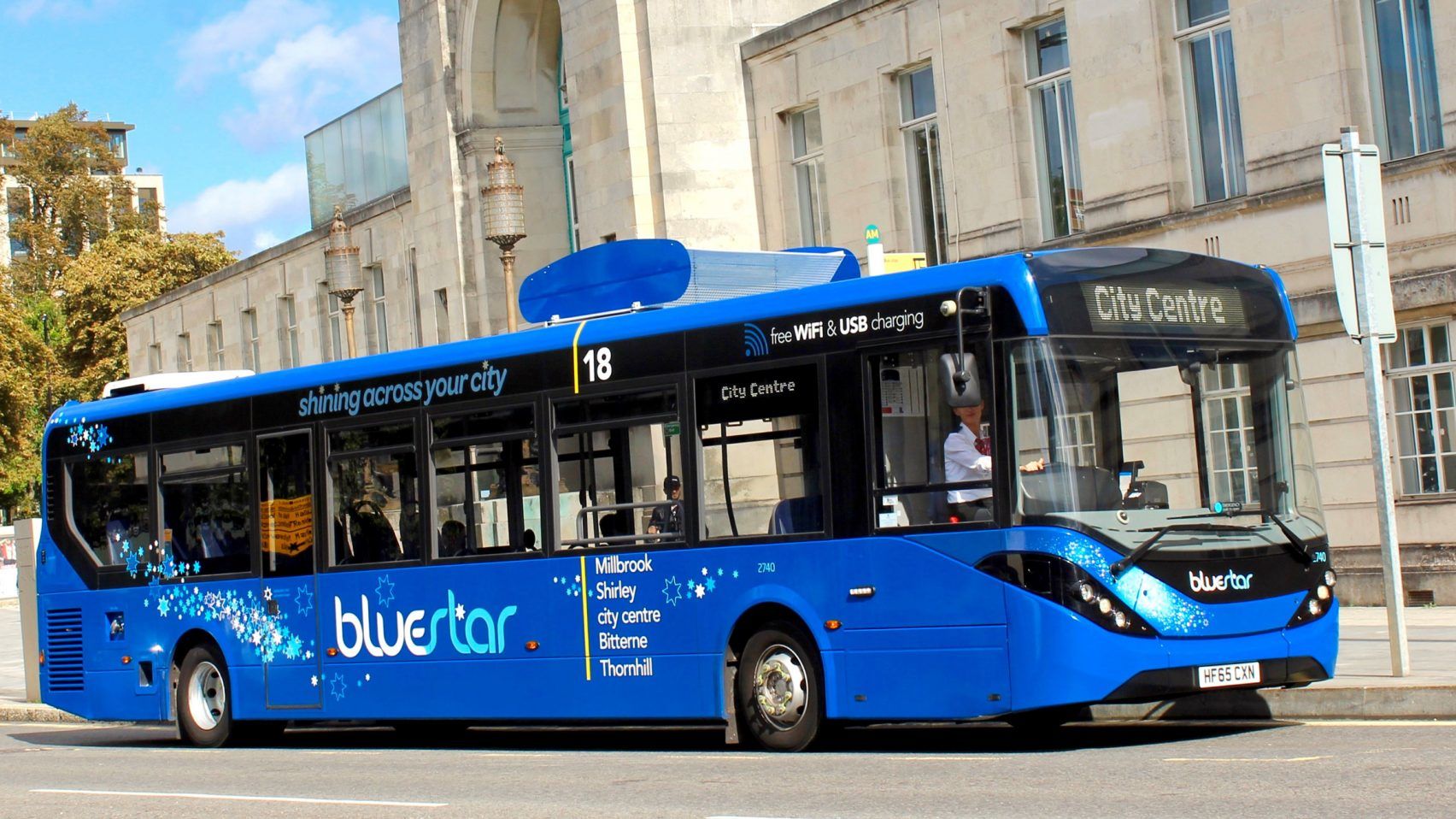
From the translator.
Shadrinsk, 75,000 inhabitants in the city, 227 km from Ekaterinburg. A recent photo at all.
